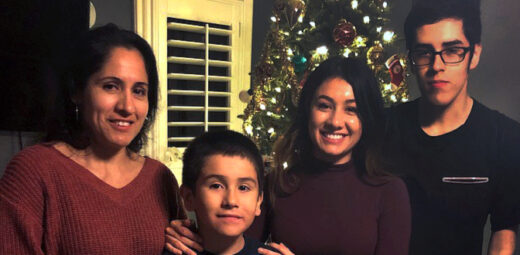
Aug 05The Next Generation of Leaders
Mercy Housing provides quality, evidence-based Out of School Time (OST) programming for hundreds of youth in California communities. The goal of OST is to supplement young residents’ educational and social-emotional learning to help them lay a strong foundation for academic and life success.

While originally attended primarily by K-5th grade residents, these programs have expanded over the last three years to meet the needs of pre-teen and teen residents, including a teen-focused distance-learning curriculum as part of Camp Mercy (@MercyHousingLearning), the new summer virtual learning program that took place in July.
Some of the teens participating in our OST programming will be starting college in the fall, and many young adults who grew up attending these after-school and summer programs in their Mercy Housing communities had already gone off to college when the pandemic started. When coronavirus struck in March, hundreds of college students around the country found themselves suddenly returning to their Mercy Housing communities to continue their education, distance-learning style, when their campuses and dorms shut down.
Maria is one of those Mercy Housing residents. She returned to her Los Angeles home in March from Brown University, where she is studying Educational Policy as her major. It was 15 years ago that Maria and her family fled a pest-infested, poorly maintained residential building and moved into a two-bedroom apartment in Mercy Housing’s newly built Grand and Venice community. There Maria found not only a real home and a community of friends, but also a neighborhood school that helped shape her future.
Maria attended the nearby public charter school, Dr. Olga Mohan High School, comprised of 99% Latinx and students earning low incomes. The school’s strict rules, uniforms, and community of passionate teachers had a profound influence on Maria. One teacher, in particular, Ms. Garcia, became her mentor. Ms. Garcia was Maria’s first-year English honors teacher and became her Yearbook Advisor when Maria became editor-in-chief. In addition to being a support to Maria throughout her high school years, Ms. Garcia guided her in becoming a stronger writer, a skill that she makes good use of at Brown University. They formed a strong bond, and Ms. Garcia still checks in with Maria when she comes home from college. It is due in part to Ms. Garcia’s influence that Maria wants to become a teacher and to work in education policy.
Maria spent part of last year studying abroad when the coronavirus crisis unfolded. She immediately had to turn around and head back home to her Mercy Housing apartment where she has been sheltering in place with her family, continuing her classes online, and finding ways to practice self-care while sharing space with her two siblings and mother in their two-bedroom unit. In Maria’s own words:
“During this hecticness, certain students in my program were worried about not having a home to return to or having to face tensions with family back home. Although Mercy Housing may not be a mansion with a pool or even a house of our own, it is a place I often find myself wanting to escape back to throughout the school year and a place I am grateful to call my humble home.”
“With the world undergoing a global pandemic, I think often about how this crisis is revealing the disparities within our society by leaving low-income kids and children from immigrant communities behind. Immigrant parents are expected to be able to assist in teaching their kids during quarantine, but some students may not have a stable home, Wi-Fi, a laptop, or a parent to help them with homework because these previously perceived disposable workers are suddenly being branded “essential” workers and put on the forefront lines to keep our economy and society running. My interest in understanding larger patterns of educational inequality is deeply rooted in my own similar experiences as a first-generation Latinx college student. I am currently attending Brown University as an Education Policy concentrator, and in the future, I hope to help bridge the aforementioned gaps and ameliorate the transition of first-generation low-income students into college, specifically in impoverished school districts such as my own.”
Maria may not yet be a teacher, but she is teaching us at Mercy Housing, a great deal — about the needs, struggles, hopes, and resiliency of youth with low incomes growing up in similar circumstances. Thank you, Maria, for sharing your story and helping us to grow our programming to better respond to the challenges of children and young adults living in our communities.
No related posts.
Stay Up To Date
Get news on Mercy Housing and inspiring stories of change delivered to your inbox.


